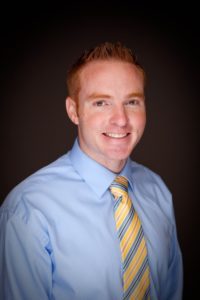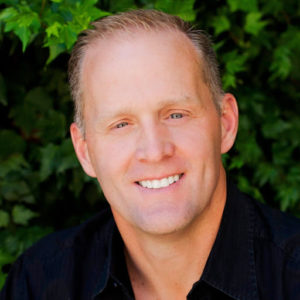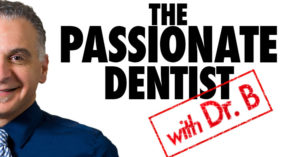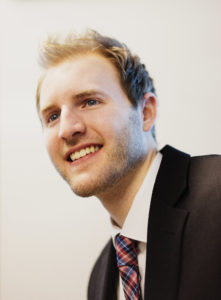by [email protected] | Jun 24, 2020 | Prescriptions for your Practice
Podcast: Play in new window | Download
 Jayme Amos joins us today to drop some much-needed wisdom bombs about private practice startups and why now might just be the perfect time to seize on a startup opportunity. One of the original dental podcasters, Jayme is a best-selling author, an expert in building practices, and the founder of dentistry’s most popular website for opening dental offices.
Jayme Amos joins us today to drop some much-needed wisdom bombs about private practice startups and why now might just be the perfect time to seize on a startup opportunity. One of the original dental podcasters, Jayme is a best-selling author, an expert in building practices, and the founder of dentistry’s most popular website for opening dental offices.
Listen in as he shares how to know whether you’re ready to open a practice, what purpose (and not a paycheck) should be the driving force behind your intention, and how to embrace the identity of CEO to lead a team, build a culture, and cast the vision of the practice. If you’re a young associate or have been toying with the idea of starting your own private practice, this episode was made for you.
Tune in to more Prescriptions for Your Practice Podcast Episodes
Key Quotes:
- “Running a business can be an endurance game.”
- “If you show up every day and it’s just about a paycheck, and it’s not about purpose, you’re not going to make it.”
- “If you have the purpose established, you can instantly be respected as a community leader.”
- “The first step is super important, and that’s defining the vision.”
- “Let’s figure out what would make you happy because I know a lot of people with really low overhead percentages who are really unhappy.”
- “If the disease is fear, the cure or the antidote is trust.”
Featured on the Show:


by [email protected] | May 20, 2020 | Maverick Mind Shifts
Podcast: Play in new window | Download
 Dentists have fought for autonomy and independence for so long, and due to the current pandemic, we are now seeing the upper limits of that fight. With most practices shut down completely except for emergencies, many dentists are seeing death to their identity as a result, but we have a great opportunity right now to hit the reset button. Today’s guest is going to take us through exactly what our world could look like once the shutdown is over, as well as the opportunities before us as we head into a new economy in our industry.
Dentists have fought for autonomy and independence for so long, and due to the current pandemic, we are now seeing the upper limits of that fight. With most practices shut down completely except for emergencies, many dentists are seeing death to their identity as a result, but we have a great opportunity right now to hit the reset button. Today’s guest is going to take us through exactly what our world could look like once the shutdown is over, as well as the opportunities before us as we head into a new economy in our industry.
Tim Rauch has been on the show before, and he joins me again today to share great insight into how to leverage the opportunities of this unique situation, how to own the space in our practice and our community, and why the “less hours = less income” mindset is a fallacy. His advice will no doubt flip the script on chasing money at the expense of preserving memories and enjoying life, so you don’t want to miss it!
Be Inspired and tune in to more Mind Shift Podcast episodes
Key Quotes:
- “The opportunities are going to be for dentists who are good at connecting with other dentists.”
- “The people who have a unique set of clinical skills will always be safer than the generalist.”
- “There is a brighter future in giving people what they want and what they’re willing to pay for out of pocket.”
- “A lot of dentists are seeing almost a death of their own identity at this point in time.”
- “This is a reset opportunity to really acknowledge that some of the things that we do, like trading five days for two days of the weekend, may be a dumb pursuit.”
- “You don’t want to completely trade today for a better tomorrow.”
Featured on the Show:


by Karah Karah | Apr 5, 2017 | Legendary Leadership, Maverick Mind Shifts
Podcast: Play in new window | Download
 I met Dr. Jason Campbell at the Voices of Dentistry Summit in Nashville, TN. He has a fascinating story and is engaged in groundbreaking work with patients at his clinic, Cosmetic and Family Dentistry, in Prescott, AZ. From an early age, Jason’s always wanted to be a dentist. Since genetic problems with teeth plagued him from the beginning, he brings a sense of passion to working with patients who present unique challenges.
I met Dr. Jason Campbell at the Voices of Dentistry Summit in Nashville, TN. He has a fascinating story and is engaged in groundbreaking work with patients at his clinic, Cosmetic and Family Dentistry, in Prescott, AZ. From an early age, Jason’s always wanted to be a dentist. Since genetic problems with teeth plagued him from the beginning, he brings a sense of passion to working with patients who present unique challenges.
Jason is a general dentist, but he’s also engaged in complex surgeries and reconstructive dentistry. It wasn’t until he was 14 years old that he was able to get the reconstructive surgery he needed. This allows Jason to relate to patients with challenging cases that other dentists can’t or won’t touch.
Jason is an expert in biomechanical problems and can often bring people relief with minor treatments. He trains doctors to identify underlying causes that often generate a host of symptoms that can lead to an improper diagnosis. He specializes in helping dental refugees who haven’t found success in resolving tooth-related illnesses. In this episode of Relentless Dentist, we’ll talk about how Jason is leading the pack in transforming the practice of dentistry. He’s helping patients who feel like there are no hope and training other dentists to follow in his footsteps.
Key Quotes:
- I feel like there’s this third thing in dentistry that we’re missing – interventional care.
- Dentistry is an act of charity. Charity brings good things into your life.
- You hear of interventional medicine, but you don’t hear that term a lot in dentistry.
- In dentistry, there really are only three things that we contend with. If we can help people avoid these three elements, we can stop 99% of dental problems.
- Inflammation systematically increases your risk for type II diabetes. It increases your risk for pancreatic cancer.
- When you have these three issues: biomechanical problems, acidity problems, and inflammation – that’s what really causing tooth issues.
- You have to start peeling back the symptoms to get the cause to determine what’s the best course of treatment for the person.
- There’s life beyond dentistry.
Register now for upcoming API Biofunctional Disorder and Surgical/Implant Courses: www.AdvancedProstheticsInstitute.com
Special Offers for Relentless Dentist listeners:
Save $150 on first course registration with coupon code TRD150
Save 10% on both course registrations with coupon code API10for2


by Karah Karah | Mar 29, 2017 | Bold Biographies, Maverick Mind Shifts, Prescriptions for your Practice
Podcast: Play in new window | Download
 Today’s episode is a little different. Instead of me interviewing our guest, Dr. Bilal Saib of The Passionate Dentist podcast, we interview each other about the highs and lows of our careers and the joys of podcasting.
Today’s episode is a little different. Instead of me interviewing our guest, Dr. Bilal Saib of The Passionate Dentist podcast, we interview each other about the highs and lows of our careers and the joys of podcasting.
Dr. B is a fellow dentist and podcaster based in North Carolina. He’s also a frequent missionary to the West Bank, where he performs free dental work in communities in need. In this episode, we talk about how our shows have given us a greater sense of community with other dentists, and dig into our careers.
Dr. B and I talk about the lack of confidence among dentists, which is exacerbated by our tendency to only talk about the good things happening in our practices. We discuss the self-reflection that goes into building your own practice and learning how to manage a team, and how it’s made us better people. Dr. B also shares some of his experiences with missionary work, a unique but meaningful challenge he feels compelled to undertake.
Key Quotes:
- When you decide to own dental practice, you have to step up to the plate and do what is required of you.
- The thing that makes us more fulfilled and makes our practices grow is the psychology of you, the owner, and there’s nothing more powerful in psychology than confidence.
- What the practice requires of me has made me such a better person.
- I go on mission trips because I’m sharing my gift. And my gift is all these little tidbits of things that are lined up perfectly to create this perfect environment.
- I chose to have a low volume, high-quality practice even before I started my practice.
- Dentists are sometimes so benevolent that we forget the time and energy that we put into our education, hiring and firing staff, and patient relationships – there’s a lot of equity there – either because we come from humble beginnings or because we come from a place of give, give give.
- One of the first questions I ask dental students is: “why did you choose to become a dentist?”
- The first check I ever wrote myself was $100. It was a symbolic gesture of my three year anniversary.
- You learn a lot from practice management because when you have a busy practice, you learn what you want and you learn what you really don’t want. And there’s huge value in knowing what you want.
- Don’t treat insurance patients differently than non-insurance patients. Don’t cut your quality short. Do your very best with every patient, even if they’re on insurance.
Featured on the Show:


by Karah Karah | Mar 22, 2017 | Prescriptions for your Practice
Podcast: Play in new window | Download
 Disability coverage isn’t something most dentists think about, especially when they feel young and bulletproof at the beginning of their careers. But my guest today, Chris Bransgrove, knows that dentists need to consider the possibility that they could develop a disability and jeopardize their practice and career.
Disability coverage isn’t something most dentists think about, especially when they feel young and bulletproof at the beginning of their careers. But my guest today, Chris Bransgrove, knows that dentists need to consider the possibility that they could develop a disability and jeopardize their practice and career.
Chris is an advisor at Lucet Advisors and specializes in helping dentists understand the kind of disability coverage they need. When insurance companies know how to stack the deck against your practice, it’s important to have someone on your side that knows the ins and outs of contracts and disability coverage.
Chris and I break down some myths about disability insurance that you may believe and provide you with accurate information instead. We cover a lot of ground, including the definition of disability you want your contract to have; coverage for partial and residual disabilities; what you need to know about coverage for mental health; and much more. Many dentists don’t review this stuff often enough, so be sure to tune in and find out what you should be doing differently!
Key Quotes:
- The insurance companies themselves are smart – they know how to stack the odds against the doctor and in the insurance companies’ favor.
- Disablity insurance itself is nothing more than a promise to pay.
- Generally, when it comes to definitions, the shorter it is, sometimes the better – because if it’s longer, it can leave more room for interpretation.
- What’s important in the language of the contract are the triggers, where this partial benefit kicks in and starts to make up lost revenue.
- When a doctor gets disability insurance for the first time, the insurance company looks at their income and good health – and what a future increase option does is it takes the second requirement of good health off the table.
- An elimination period or a waiting period is basically like a deductible, but instead of being in dollars, it’s in days.
- With vendors now, you can get an additional benefit just to cover student loans.
- Depending on the contract, some claims may be excluded or limited – the biggest one is mental nervous claims, and I prefer there not to be any limiting in my doctors’ contracts.
- There is a policy called overhead expense that allows you to keep the lights on or buys you time to find a suitable buyer.
Featured on the Show:
Registered Representative and Financial Advisor of Park Avenue Securities, LLC (PAS), 6455 S Yosemite St., 3rd Floor, Greenwood Village CO. Securities products/services and advisory services are offered through PAS, a registered broker/dealer and investment advisor, 303-770-9020. Financial Representative, The Guardian Life Insurance Company of America (Guardian), New York, NY. PAS is an indirect, wholly-owned subsidiary of Guardian. Wealth Strategies Group is not an affiliate or subsidiary of PAS or Guardian. Lucet Advisors is not a registered investment advisor.
PAS is a member FINRA, SIPC


 Jayme Amos joins us today to drop some much-needed wisdom bombs about private practice startups and why now might just be the perfect time to seize on a startup opportunity. One of the original dental podcasters, Jayme is a best-selling author, an expert in building practices, and the founder of dentistry’s most popular website for opening dental offices.
Jayme Amos joins us today to drop some much-needed wisdom bombs about private practice startups and why now might just be the perfect time to seize on a startup opportunity. One of the original dental podcasters, Jayme is a best-selling author, an expert in building practices, and the founder of dentistry’s most popular website for opening dental offices.


 Dentists have fought for autonomy and independence for so long, and due to the current pandemic, we are now seeing the upper limits of that fight. With most practices shut down completely except for emergencies, many dentists are seeing death to their identity as a result, but we have a great opportunity right now to hit the reset button. Today’s guest is going to take us through exactly what our world could look like once the shutdown is over, as well as the opportunities before us as we head into a new economy in our industry.
Dentists have fought for autonomy and independence for so long, and due to the current pandemic, we are now seeing the upper limits of that fight. With most practices shut down completely except for emergencies, many dentists are seeing death to their identity as a result, but we have a great opportunity right now to hit the reset button. Today’s guest is going to take us through exactly what our world could look like once the shutdown is over, as well as the opportunities before us as we head into a new economy in our industry. I met Dr. Jason Campbell at the Voices of Dentistry Summit in Nashville, TN. He has a fascinating story and is engaged in groundbreaking work with patients at his clinic, Cosmetic and Family Dentistry, in Prescott, AZ. From an early age, Jason’s always wanted to be a dentist. Since genetic problems with teeth plagued him from the beginning, he brings a sense of passion to working with patients who present unique challenges.
I met Dr. Jason Campbell at the Voices of Dentistry Summit in Nashville, TN. He has a fascinating story and is engaged in groundbreaking work with patients at his clinic, Cosmetic and Family Dentistry, in Prescott, AZ. From an early age, Jason’s always wanted to be a dentist. Since genetic problems with teeth plagued him from the beginning, he brings a sense of passion to working with patients who present unique challenges. Today’s episode is a little different. Instead of me interviewing our guest, Dr. Bilal Saib of
Today’s episode is a little different. Instead of me interviewing our guest, Dr. Bilal Saib of  Disability coverage isn’t something most dentists think about, especially when they feel young and bulletproof at the beginning of their careers. But my guest today, Chris Bransgrove, knows that dentists need to consider the possibility that they could develop a disability and jeopardize their practice and career.
Disability coverage isn’t something most dentists think about, especially when they feel young and bulletproof at the beginning of their careers. But my guest today, Chris Bransgrove, knows that dentists need to consider the possibility that they could develop a disability and jeopardize their practice and career.